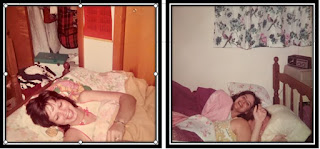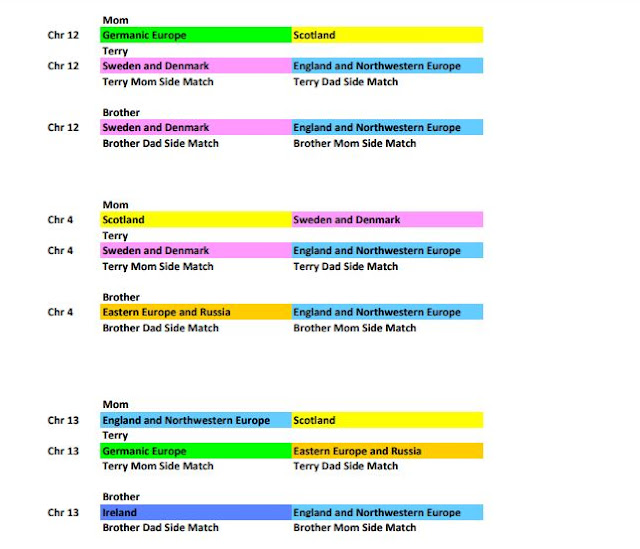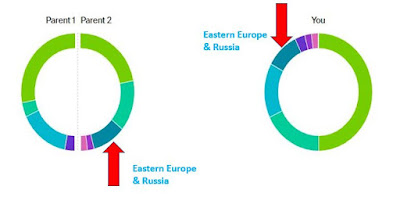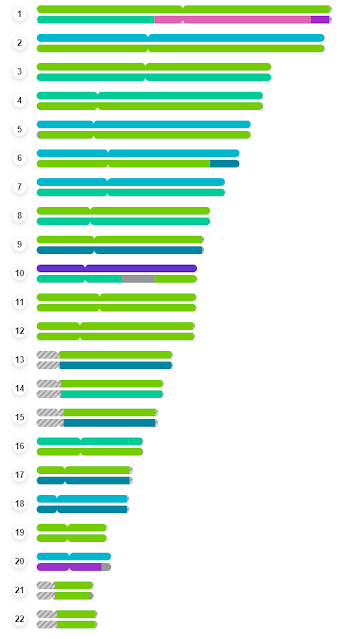Before you can celebrate Family History Month shouldn’t you at least have a working definition of the term, family? Some define family as those individuals who live or have lived together in one dwelling. Some define family by a minimum number of shared centimorgans. And some use the heart to set the parameters for who is and isn’t family.
Karen Ferry in Make Me Believe wrote, “Family
isn’t whose blood you carry … It’s who you love and who loves you back.”
Fifteen years ago, I struggled with my own definition. Below
is the post I wrote My words were
true then, and they are true now.
(FYI – I no longer am a Grey’s Anatomy aficionado, and the
number of grandchildren has mushroomed from that mere puny four.)
In honor of Family History Month:
For National Family History Month — One Definition of
Family
For someone who professes a great interest in family
history, I have dragged my heels on mentioning the fact that October has been
designated as National Family History Month. As I mentally planned this post, I
intended to link you to some terrific ideas on how to celebrate the month.
Instead, I find myself squirming about writing on the
subject. Preferring instead to put the laptop down, and go foraging for
something to eat, or something interesting to read. Or, when I finally make
myself sit with laptop in hand, I suddenly feel the need to find spoilers for
“Grey's Anatomy,” or a good recipe for crock-pot Chili or googling about any
errant thought that flitters through my brain — anything but writing this post.
The sticking point for me is I'm suddenly self-conscious
about the definition of family. If human beings conducted their lives in a nice
orderly fashion, and if we all lived to be ninety, the concept of family would
be easy. But we don't. We sometimes die in automobile accidents, or get cancer,
or we find the love of our life isn't, or we somehow derail a perfectly good
life for liquor or drugs or lust. I'm not making judgments; I'm stating that
human beings lead messy lives. And these messy lives have consequences, one of
which is that the definition of family gets bruised and muddied.
Is a favored uncle by
marriage who died more than 40 years ago, still part of my family? Is the aunt
of my youth, no longer married to my biological uncle still my aunt? The grade
school project of making a family tree seems innocent and straight forward,
unless you happen to be an adopted child, or a foster child, or child of a
blended family. What tree does that child make? What genealogical chain does he
follow? What family history should she celebrate?
Dr. Joyce Maguire Pavao, author of The Family of
Adoption, talks instead of a family tree, a family orchard that
includes as many trees as necessary for an individual's identity. The concept
allows for both biology and reality, for inclusion of nature and nurture. In my
family, it allows the man who adopted my grandfather when he was 10, and whose
last name I carried until I married, to be recognized and honored in our family
orchard. It allows my orchard to include four beautiful grandchildren for whom
I am not grandmother by blood, but rather grandmother by heart. It is a concept
I embrace.
Until Next Time — Happy Ancestral Digging!
Note: This post first published
online, October 11, 2007, at Desktop Genealogist Blog at The Fremont News-Messenger.

















